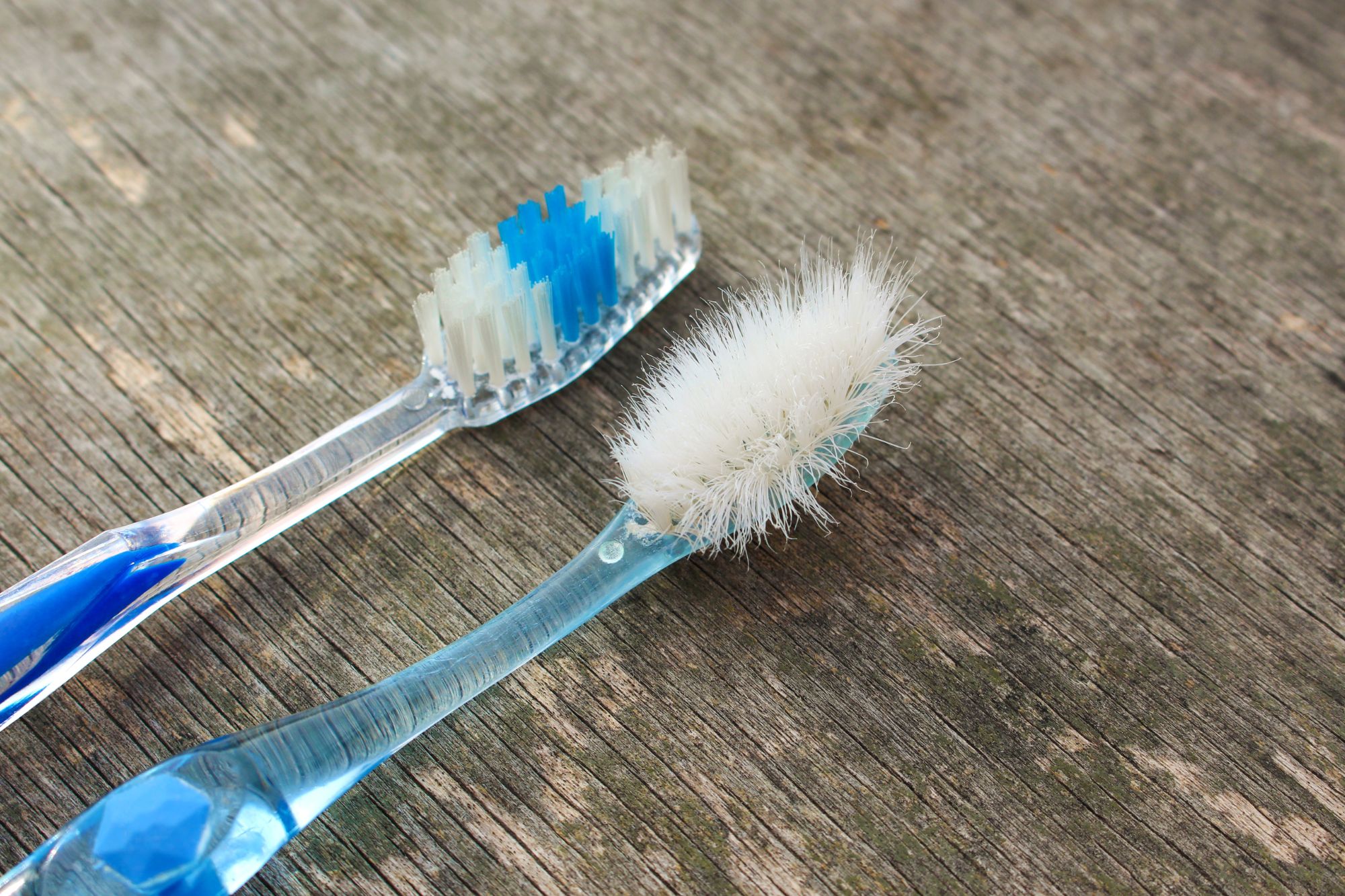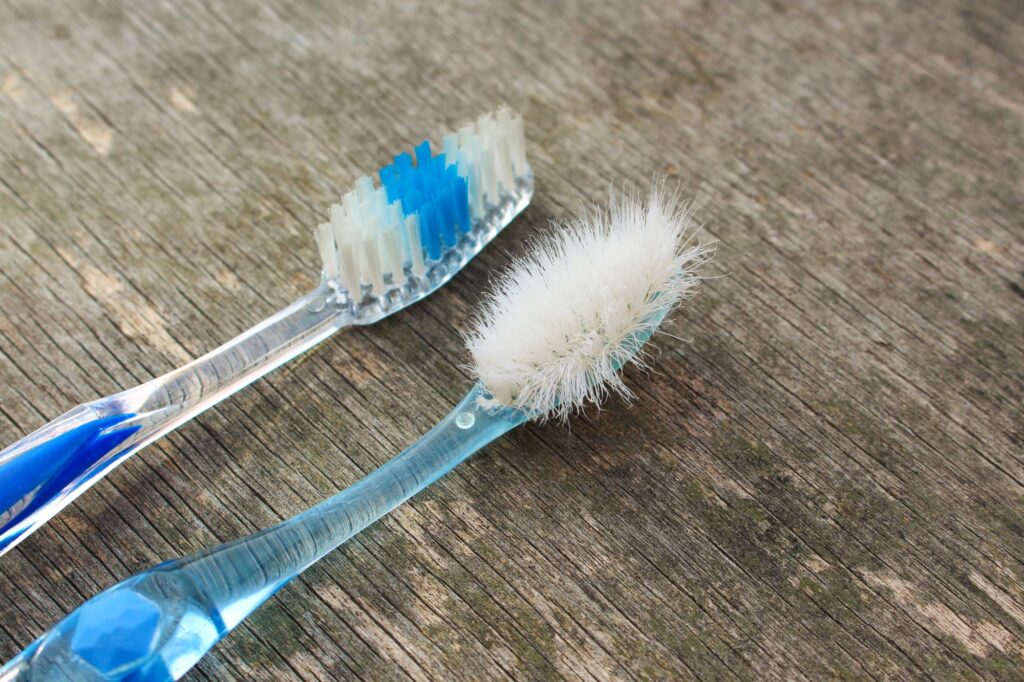How Often Should You Change Your Toothbrush: A Complete Guide to Maintaining Oral Health

Table of Contents

Image Source: Canva
Taking care of your oral health is essential for a bright smile and overall well-being. Brushing your teeth regularly is a crucial part of maintaining good oral hygiene. But have you ever wondered how often you should change your toothbrush? In this comprehensive guide, we'll explore the importance of replacing your toothbrush regularly and provide you with all the information you need to keep your oral health in check.
The Importance of Changing Your Toothbrush
Your toothbrush plays a vital role in keeping your teeth clean and free from plaque and bacteria. However, over time, the bristles on your toothbrush wear down, making it less effective at cleaning your teeth and gums. Bristles that are frayed or splayed cannot reach all the nooks and crannies in your mouth, increasing the risk of plaque buildup, cavities, and gum disease.
Regularly changing your toothbrush ensures that you have a tool that effectively removes plaque and keeps your teeth and gums healthy. By replacing your toothbrush at the right intervals, you can maintain optimal oral hygiene and reduce the risk of dental problems.
How Often Should You Change Your Manual Toothbrush?
Manual toothbrushes should typically be replaced every three to four months. This timeframe allows you to maintain a toothbrush with bristles that are in good condition and capable of effectively cleaning your teeth. However, it's important to note that the condition of the bristles is more important than the age of the toothbrush. If you notice that the bristles are frayed or bent before the three-month mark, it's time to get a new toothbrush.
It's worth mentioning that certain factors may require more frequent toothbrush replacements. If you have a habit of brushing your teeth vigorously or if you've been sick, it's advisable to change your toothbrush even sooner. Vigorous brushing can cause the bristles to wear down more quickly, reducing their effectiveness. Additionally, when you've been sick, your toothbrush can harbor bacteria and germs, increasing the risk of reinfection. Therefore, it's best to err on the side of caution and replace your toothbrush after an illness.
How Often Should You Change Electric Toothbrush Heads?
Electric toothbrushes have become increasingly popular due to their efficiency in cleaning teeth. Just like manual toothbrushes, the bristles on electric toothbrush heads wear down over time and become less effective. On average, electric toothbrush heads should be replaced every three months. However, keep in mind that the bristles on electric toothbrush heads are generally shorter than those on manual toothbrushes, making them more prone to wear and tear.
If you notice that the bristles on your electric toothbrush head are frayed or no longer in optimal condition, it's advisable to replace it sooner. Regularly changing the brush head ensures that you continue to receive the maximum benefits of using an electric toothbrush.
How Often Should You Change Your Toothbrush with Braces?
If you have braces, proper oral hygiene becomes even more crucial. Braces can make it challenging to clean your teeth effectively, as they create additional spaces for plaque and food particles to accumulate. Therefore, it's important to pay extra attention to your toothbrushing routine and replace your toothbrush regularly.
For individuals with braces, both manual and electric toothbrushes should be replaced every two to three months. The wires and brackets of braces can cause bristles to fray and wear down more quickly, reducing their effectiveness. By changing your toothbrush regularly, you can ensure that you're effectively cleaning your teeth and preventing any oral health issues that may arise from having braces.
How to Maintain Your Toothbrush Heads
To get the most out of your toothbrush heads and ensure optimal oral hygiene, it's important to properly maintain them. Here are some tips to help you keep your toothbrush heads in good condition:
- Allow your toothbrush to air-dry: After each use, rinse your toothbrush head thoroughly and allow it to air-dry in an upright position. This helps prevent the growth of bacteria and mold.
- Avoid storing toothbrushes together: To prevent cross-contamination, avoid storing multiple toothbrushes in close proximity. This reduces the risk of bacteria spreading from one toothbrush to another.
- Replace worn-out toothbrush heads: Regularly inspect your toothbrush heads for signs of wear and tear. If you notice frayed or bent bristles, it's time for a replacement.
- Keep toothbrushes away from the toilet: Store your toothbrushes in a clean and dry area, away from the toilet. Flushing the toilet can release bacteria and germs into the air, which may settle on your toothbrush if it's nearby.
By following these simple maintenance tips, you can ensure that your toothbrush heads remain clean and effective for as long as possible.
The Risks of Not Changing Your Toothbrush
Failing to change your toothbrush regularly can have negative consequences for your oral health. Here are some risks associated with using an old toothbrush:
- Reduced plaque removal: As the bristles on your toothbrush wear down, they become less effective at removing plaque from your teeth. This can lead to an increased risk of cavities, gum disease, and bad breath.
- Bacterial buildup: Over time, your toothbrush can become a breeding ground for bacteria. This can result in the reintroduction of harmful bacteria into your mouth each time you brush, increasing the risk of oral infections and other health issues.
- Inadequate cleaning with braces: Individuals with braces face additional challenges in maintaining good oral hygiene. Using an old toothbrush with braces can make it even more difficult to clean effectively, increasing the risk of cavities and gum problems.
By regularly changing your toothbrush, you can avoid these risks and ensure that you're maintaining optimal oral health.
Additional Tips for Maintaining Oral Hygiene
In addition to changing your toothbrush regularly, there are other essential practices to incorporate into your oral hygiene routine. Here are some tips to help you maintain a healthy smile:
- Brush your teeth twice a day: Brush your teeth thoroughly for two minutes, twice a day. Use a gentle, circular motion to clean all surfaces of your teeth and gums.
- Floss daily: Flossing is crucial for removing plaque and food particles from between your teeth and along the gumline. Make it a habit to floss at least once a day.
- Use mouthwash: Incorporate mouthwash into your routine to help kill bacteria and freshen your breath. Choose a mouthwash that is alcohol-free and contains fluoride for added protection against cavities.
- Visit your dentist regularly: Regular dental check-ups are essential for maintaining good oral health. Your dentist can identify any potential issues and provide professional cleanings to keep your teeth and gums in optimal condition.
By following these tips and changing your toothbrush regularly, you can enjoy a healthy smile and maintain optimal oral hygiene.
Conclusion
Regularly changing your toothbrush is an important aspect of maintaining good oral hygiene. Whether you use a manual or electric toothbrush, replacing your toothbrush or toothbrush head every three to four months ensures that you have an effective tool to clean your teeth and gums. Additionally, individuals with braces should be especially diligent in changing their toothbrushes every two to three months to maintain optimal oral health.
By incorporating proper toothbrush maintenance and following a comprehensive oral hygiene routine, including brushing, flossing, and regular dental visits, you can achieve and maintain a healthy smile. Remember, your oral health is an investment in your overall well-being, so prioritize it and make changing your toothbrush a regular part of your oral care routine.
Important Links
https://www.goodhousekeeping.com/health/a45999793/how-often-to-change-toothbrush/
https://www.chaskadentist.com/blog/2021/01/06/how-often-should-you-change-your-toothbrush/
https://patuxentorthodontics.com/how-often-should-you-change-your-toothbrush/
https://www.verywellhealth.com/how-often-should-you-change-your-toothbrush-7968548
The information available on the Website is for general health information only and is not intended to be a substitute for professional medical advice, diagnosis or treatment. You should not rely exclusively on information provided on the Website for your health needs. All specific medical questions should be presented to your own health care provider and you should seek medical advice regarding and before making any changes related to your health.
If you choose to use the information available on the Website without prior consultation with and consent of your physician, you are agreeing to accept full responsibility for your decisions and agreeing to hold harmless Randall K. McVey, DMD PA, its agents, employees, contractors, and any affiliated companies from any liability with respect to injury or illness to you or your property arising out of or connected with your use of this information.
MedicAL DISCLAIMER
Patient Portal
help
Disclaimers
HIPAA
Accessibility
Privacy Policy & Cookie Policy
Terms & Conditions